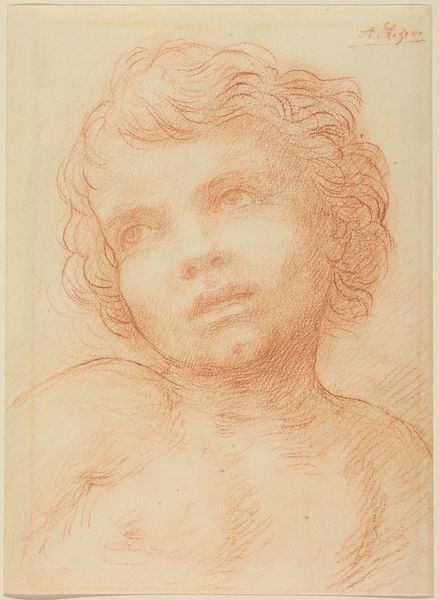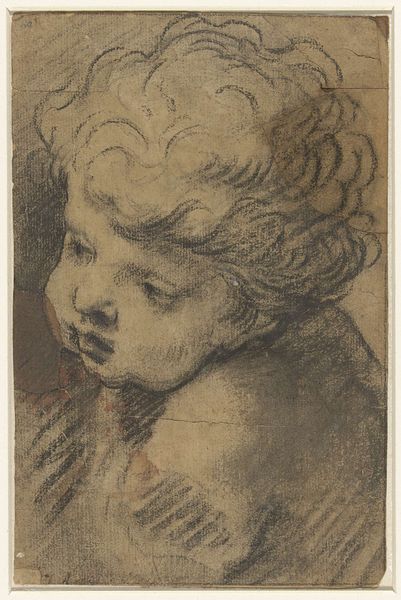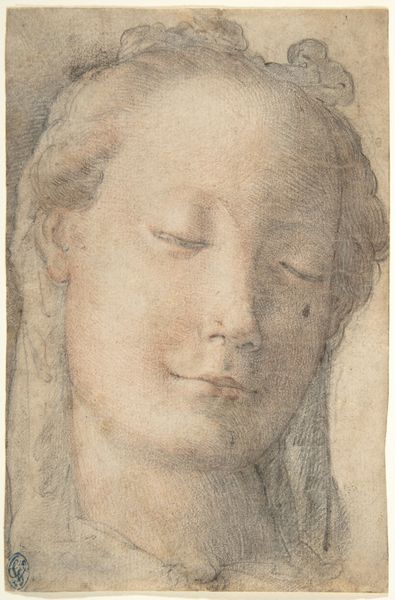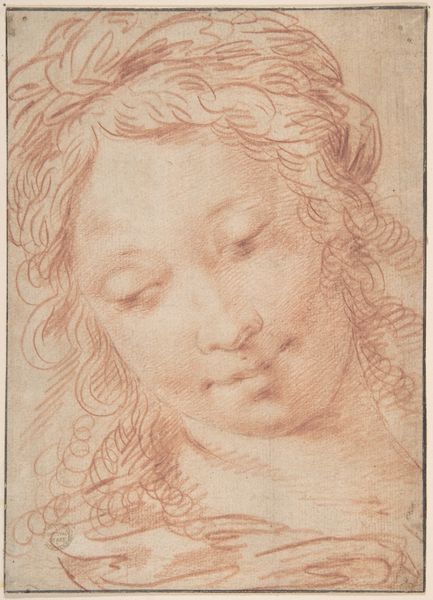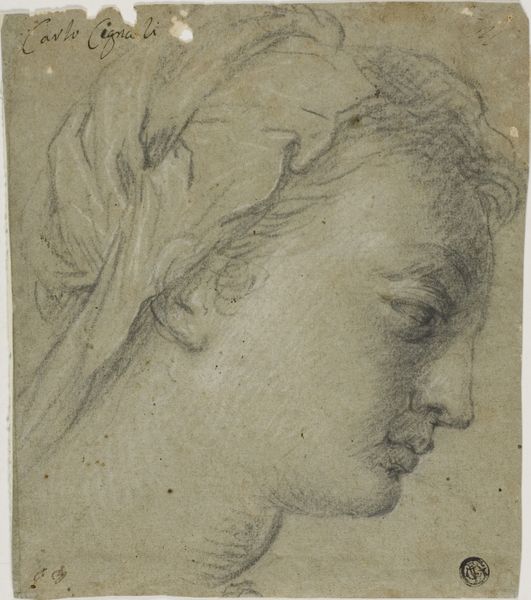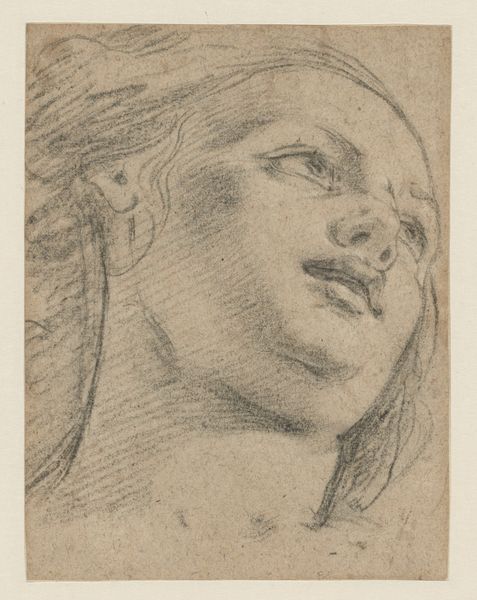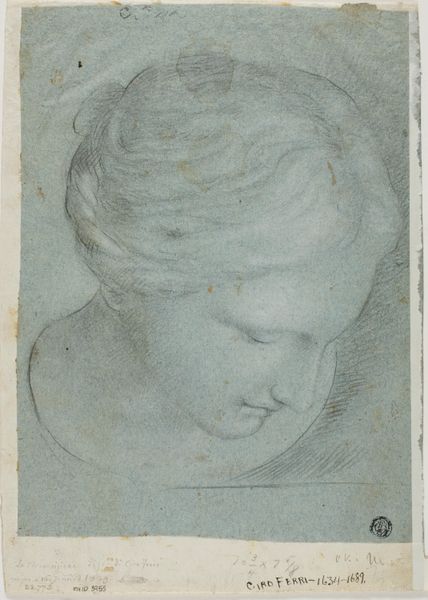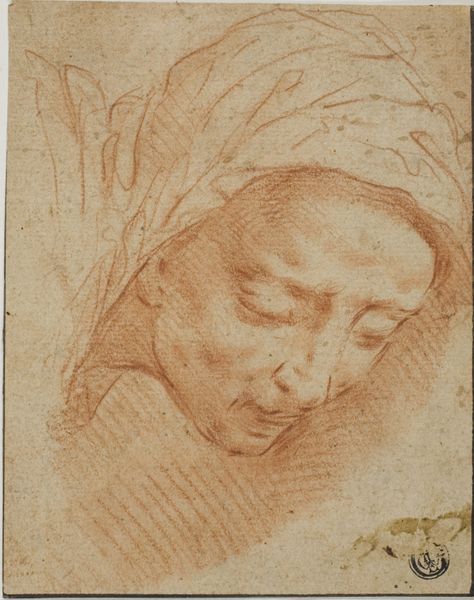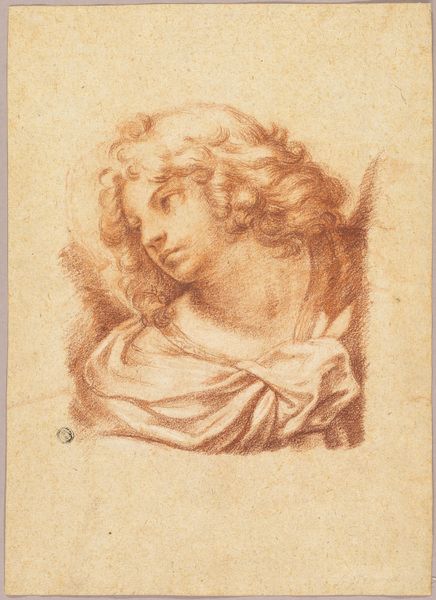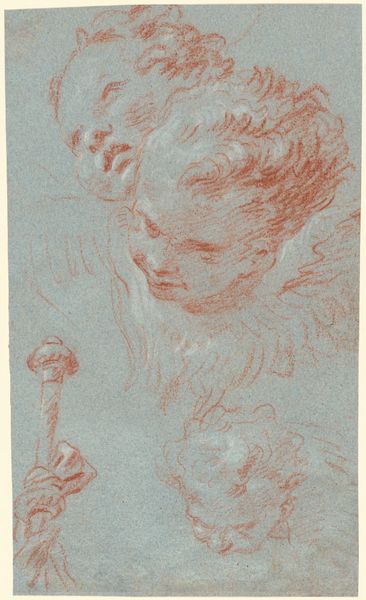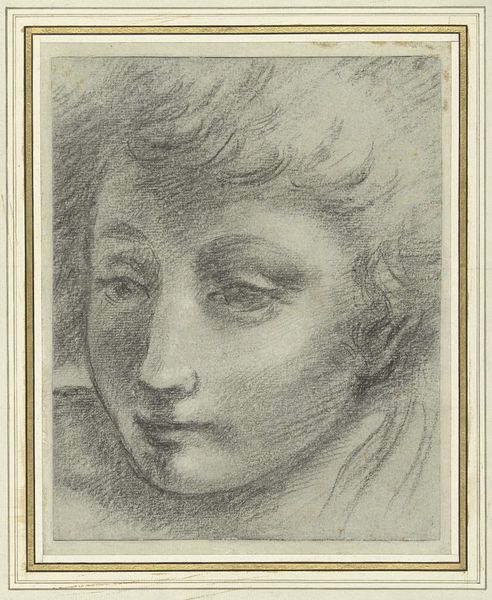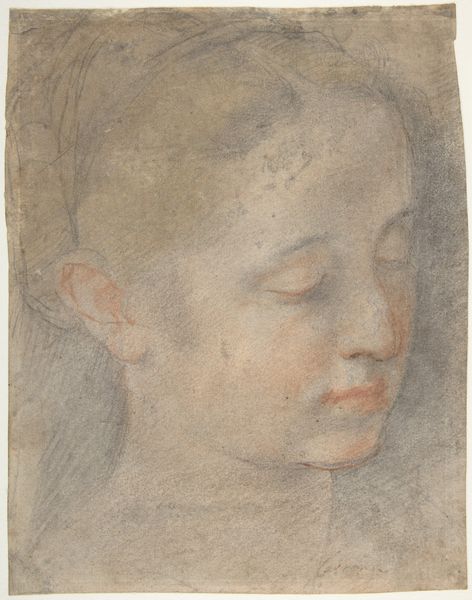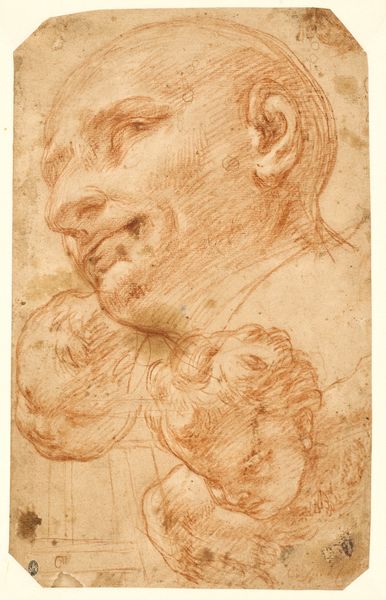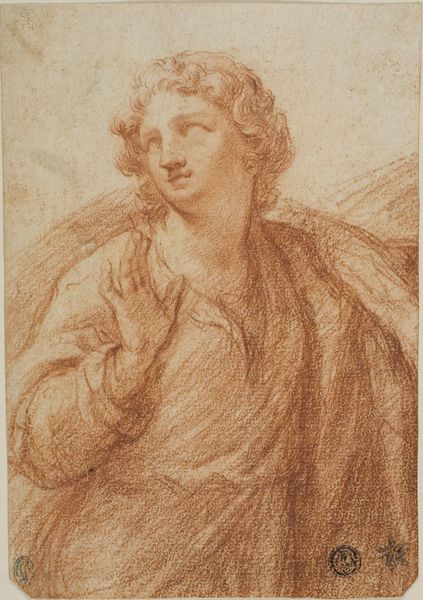
drawing, red-chalk, dry-media, chalk
#
portrait
#
drawing
#
self-portrait
#
baroque
#
red-chalk
#
charcoal drawing
#
dry-media
#
chalk
#
portrait drawing
#
academic-art
Dimensions: 4 5/16 x 3 7/16 in. (10.95 x 8.73 cm) (sheet)
Copyright: Public Domain
This sanguine drawing depicts the head of a young boy, and it appears to be a study for a sculpture, although both the artist and the date remain unknown. It’s useful to consider that European art academies, from the 16th century onwards, structured their teaching around the human form. Students would spend hours, days, weeks, even years, copying from plaster casts of antique sculptures like this one, before they were even allowed to draw from life. The institutions, the art, and the training were all tightly bound together. Why was the antique, particularly classical sculpture from ancient Greece and Rome, seen as the ideal? The art academy’s fixation with antiquity reveals a very specific set of values – cultural, social and political – that elevated a certain kind of art, a certain canon of art, and a very narrow section of society. In approaching a work like this, the art historian uses all available evidence to try to understand the social and institutional conditions that shaped its creation.
Comments
No comments
Be the first to comment and join the conversation on the ultimate creative platform.
